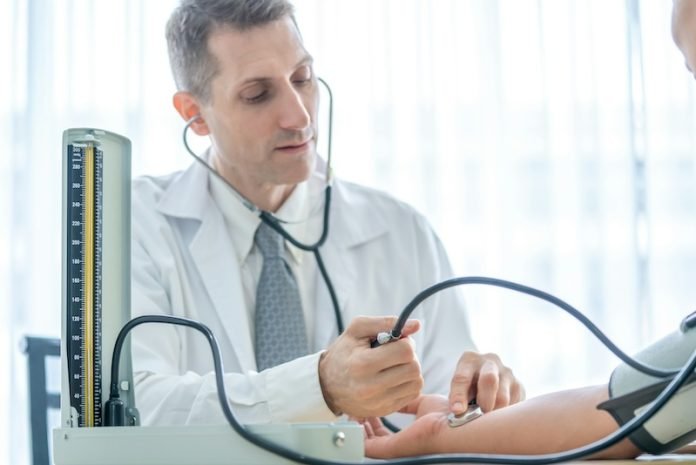
Discovering high blood pressure early can be a game-changer in maintaining heart health and preventing serious complications.
Often dubbed the “silent killer,” high blood pressure, or hypertension, typically doesn’t wave red flags with noticeable symptoms.
Yet, its impact can be profound, leading to heart disease, stroke, and kidney problems. This review dives into the importance of early detection and management of high blood pressure, emphasizing evidence-backed strategies.
Understanding high blood pressure starts with knowing what it really means. Simply put, blood pressure is the force of blood pushing against the walls of your arteries as it’s pumped by your heart.
When this force is consistently too high, it makes the heart and arteries work harder and less efficiently, setting the stage for damage over time. The tricky part is that high blood pressure doesn’t always make you feel bad right away, which is why checking it regularly is critical.
The journey to catching high blood pressure early begins with regular monitoring. Medical guidelines suggest that adults should get their blood pressure checked at least once a year.
If you have a family history of heart disease, are overweight, or have other risk factors, more frequent checks are wise. Home blood pressure monitors have made it easier and more convenient to keep tabs on your numbers.
Research underscores the lifesaving potential of early detection. Studies have shown that identifying and treating high blood pressure early can significantly reduce the risk of heart attack, stroke, and kidney failure.
The key lies in the proactive management of blood pressure, which includes lifestyle modifications and, when necessary, medication.
Lifestyle plays a starring role in both preventing and managing high blood pressure. A heart-healthy diet rich in fruits, vegetables, lean proteins, and whole grains, coupled with reducing salt intake, can help manage blood pressure levels.
Regular physical activity, maintaining a healthy weight, and avoiding tobacco and excessive alcohol can also make a significant difference. These changes, simple as they may seem, have the power to not only lower blood pressure but also enhance overall health.
For some, lifestyle adjustments might not be enough to bring their blood pressure down to safe levels. This is where medication can step in as a vital ally.
Numerous studies have found that blood pressure medications, when used as prescribed, effectively lower the risk of heart disease and stroke. The key is finding the right medication and dose, a process that might require close collaboration with a healthcare provider.
The integration of technology has opened new doors for managing high blood pressure. Smartphone apps and wearable devices that track blood pressure and heart health are becoming tools in the arsenal against hypertension.
These technologies not only help in monitoring but also in reminding individuals to take their medication and stay active, fostering a proactive approach to heart health.
Early detection and management of high blood pressure are undoubtedly powerful strategies in the fight against heart disease.
By staying informed, getting regular check-ups, adopting a healthy lifestyle, and using technology wisely, individuals can take significant strides toward safeguarding their heart health.
Remember, the journey to a healthy heart begins with awareness and action, emphasizing the importance of catching high blood pressure before it catches up with you.
If you care about blood pressure, please read studies that black licorice could cause dangerous high blood pressure, and this common plant nutrient could help reduce high blood pressure.
For more information about blood pressure, please see recent studies about how coffee influence your risk of high blood pressure, and results showing this olive oil could reduce blood pressure in healthy people.
Copyright © 2024 Knowridge Science Report. All rights reserved.



